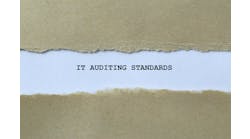Compliance and ethics officers are now among the high-ranking executives with a seat in the C-suite, according to “The Relationship between the Board of Directors and the Compliance and Ethics Officer,” a survey report, recently released by the Society of Corporate Compliance and Ethics (SCCE) and the Health Care Compliance Association (HCCA). For most companies, the compliance department reports to the board or the chief executive officer (CEO), meets with the board regularly, and has won the appreciation of the board of directors, according to the survey results.
“It’s now clear that compliance has become not just central to business, but central to business leadership. The commitment of compliance to finding and fixing problems is bringing real value to C-suites,” said SCCE and HCCA Chief Executive Officer Roy Snell.
The survey finds that for compliance departments not reporting to the board, half reported directly to the CEO, and in the health care industry, that number rose to 62 percent. The trend for compliance to report to legal is all but past. Just 20 percent of those not reporting to the board indicated that they reported to legal, and the number in health care was much lower at just 12 percent. The one exception to the trend was publicly traded companies, where half reported to the general counsel and just 33 percent reported to the CEO.
“Compliance is not just the legal department in another form. It’s a profession of its own, and those who advocate for compliance to report to legal are arguing for a relationship that neither serves compliance or corporate leadership. That’s probably a significant reason why reporting to legal is only done by a fraction of companies,” said Snell.
The survey also finds that compliance and the board is regularly meeting; most indicate they meet with the board four to five times annually. Generally speaking, compliance officers’ reports to the boards are not pre-screened or edited by the general counsel or others. Overall 56.5 percent report that their reports are never pre-screened or edited.
Yet, for some companies there remains more filtering than is likely desirable. According to the survey, public companies pose an interesting conundrum. On the one hand, compliance professionals express satisfaction in their relationship with the board at the same levels as others report, and they are most likely to report that the board values compliance a great deal. On the other hand, they are more likely to have their board reports filtered. In addition, when compliance does not report to the board, it is less likely to report to the CEO.
“Compliance is not just about helping companies follow the law. It’s now integral to how businesses are led,” said Snell.
Use this link to download the complete survey report (registration required): https://www.corporatecompliance.org/Login.aspx?returnurl=/Resources/View/ArticleId/4651/The-Relationship-between-the-Board-of-Directors-and-the-Compliance-and-Ethics-Officer-1.aspx

